News
Labour Suspends Minimum Wage Strike
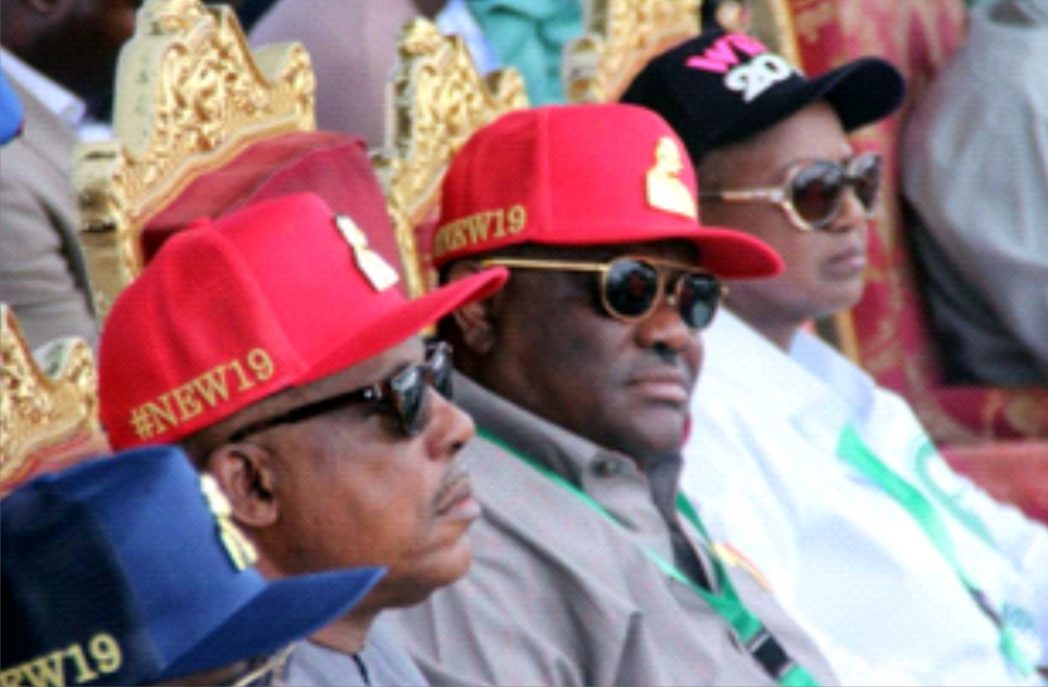
Organised Labour has suspended the seven days warning strike it called to protest the indefinite adjournment of the meetings of the tripartite committee on the new national minimum wage and to compel government to reconvene the meeting with a view to concluding its assignment.
The Minister of Labour, Senator Chris Ngige had at a meeting of the tripartite committee on the 5th of September said that the government needed more time for consultation before arriving at a figure for the committee to consider and thereafter, the meeting adjourned indefinitely, a position that angered organised labour.
A 14-day ultimatum issued by Organised Labour made up of the Nigeria Labour Congress (NLC), Trade Union of Nigeria (TUC) and the United Labour Congress (ULC) for government t to reconvene the committee failed to achieve the purpose, forcing labour to ask workers to stay at home till further notice.
However, the Chief to the President, Abba Kyari was said to have invited the leadership of labour to a meeting at the Presidential Villa with a view to finding out what led to the strike.
Announcing the suspension of the warning strike, yesterday, President of the Nigeria Labour Congress, Comrade Ayuba Wabba said organised labour has received a firm and formal invitation to a reconvened meeting of the tripartite committee scheduled for 4th and 5th of October, 2018.
He said the leadership of organised labour, however, insisted that the two-day meeting would be the final session of the committee and that a final report will be submitted to Mr. President immediately.
Wabba, flanked by other leaders of organised labour said “you may wish to recall that four days ago, we informed you that organised labour was embarking on a warning strike as from Thursday, September 26, 2018, after our 14-day ultimatum to government to reconvene the meeting and conclude the work of the Tripartite National Minimum Wage Committee elapsed.
“Indeed, on Thursday morning, the strike action commenced and was observed across the country. We wish to appreciate our workers and affiliate unions for their commitment and determination. We similarly commend members of the press for their vigorous and comprehensive reportage of the strike action. We thank all Nigerians for their support.
“We invite you here today to inform you that we have received a firm and formal invitation to a reconvened meeting of the tripartite committee scheduled for 4‘“ and 5th of October, 2018. We demand that this shall be the final session of the committee and that a final report will be submitted to Mr. President immediately.
“In order to avail the committee the necessary conducive environment to hold this crucial meeting and conclude its work, organized labour has, after obtaining the mandate of their necessary organs, decided to suspend the strike action with effect from today, Sunday September 30th, 2018.
“Once again, our commendations and appreciation go to you all who have been with us in this struggle. We urge all our unions and state councils to maintain a high level of mobilization and readiness until the struggle for a reasonable minimum wage is achieved.”
Reacting, SERAP, in a statement, yesterday by its Deputy Director, Timothy Adewale said, “The minimum wage of N18,000 for Nigerian workers stands in sharp contrast with outrageous and sometimes illegal salaries and allowances of high-ranking public officials who continue to enjoy lavish lifestyles with impunity.
“Paid so little, already vulnerable Nigerian workers are left in a precarious situation, unable to ensure a decent standard of living for themselves and their families, with access to water, health, and education seriously undermined.
“Paying workers N18,000 minimum wage is tantamount to labour exploitation and ‘normalization of poverty’, and if urgent action is not taken to reverse it, will continue to drive Nigeria’s poorest families deeper into poverty.
“Having an exploited labour force will also exacerbate incidents of bribery and petty corruption and undermine access of marginalized sector of the population to essential public services such as water, health and education.
“As the government marks Nigeria’s 58th Independence Day, now is the time for it to choose between spending billions of naira to fund the lavish lifestyles of billionaire politicians or lifting millions of Nigerian workers out of poverty by ensuring that the national minimum wage is set at a level sufficient to provide all workers and their families with a decent standard of living.
“Successive governments have demonstrated scant respect for the fundamental human right of Nigerian workers to a just remuneration while at the same time increasing salaries and allowances of high-ranking public officials including members of the National Assembly, state governors and ministers.
“This not only violates the country’s international human rights obligations but undermines its international commitment to provide an adequate living wage for ordinary workers that ensures an existence worthy of human dignity.
“Buhari only last week in the US described the ‘working poor’ and ordinary Nigerians as his ‘constituency’. He now has to provide bold leadership to improve conditions for this marginalized sector of the population by publicly supporting a just remuneration for Nigerian workers to allow them to lead a decent life. His government can make this a reality by pushing to recover stolen assets and other illicit wealth by public officials and institutions since the return of democracy in 1999.”
Nneka Amaechi-Nnadi, Abuja
News
You Failed Nigerians, Falana Slams Power Minister
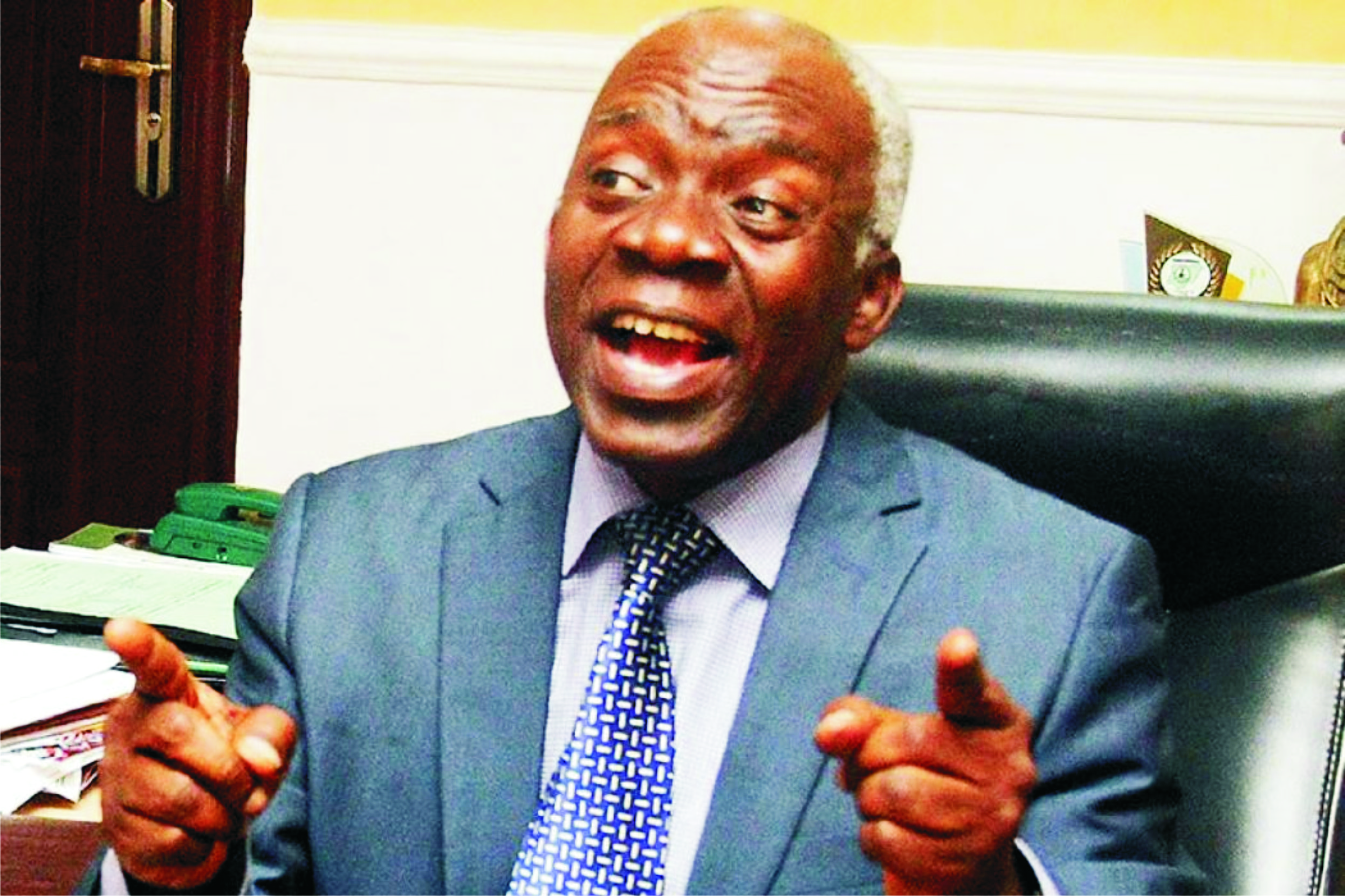
Human rights lawyer, Femi Falana, SAN, has passed a vote of ‘no confidence’ in the Federal Government, saying that the Minister of Power, Adebayo Adelabu, has failed Nigerians.
Falana was reacting to Adelabu’s appearance before the Senate to defend the increase in the electricity tariff and what Nigerians would pay on Monday.
The rights activists also claimed that the move is a policy imposed on the Nigerian government by the International Monetary Funds (IMF) and the World Bank.
Speaking on the Channels TV show on Monday night, Falana said, “The Minister of Power, Mr Adebayo Adelabu has failed to address the question of the illegality of the tariffs.
“Section 116 of the Electricity Act 2023 provides that before an increase can approved and announced, there has to be a public hearing conducted based on the request of the DISCOS to have an increase in the electricity tariffs. That was not done.
“Secondly, neither the minister nor the Nigeria Electricity Regulatory Commission has explained why the impunity that characterised the increase can be allowed.”
Falana also expressed worry over what he described as impunity on the part of the Federal Government and electricity regulatory commission.
““I have already given a notice to the commission because these guys are running Nigeria based on impunity and we can not continue like this. Whence a country claims to operate under the rule of law, all actions of the government, and all actions of individuals must comply with the provisions of relevant laws.
“Secondly, the increase was anchored on the directives of the commission that customers in Band A will have an uninterrupted electricity supply for at least 20 hours a day. That directive has been violated daily. So, on what basis can you justify the increase in the electricity tariffs”, Falana queried.
The human rights lawyer alleged that the Nigerian government is heeding an instruction given to her by the Bretton Wood institutions.
He alleged, “The Honourable Minister of Power is acting the script of the IMF and the World Bank.
“Those two agencies insisted and they continue to insist that the government of Nigeria must remove all subsidies. Fuel subsidy, electricity subsidy and what have you; all social services must be commercialised and priced beyond the reach of the majority of Nigerians.
“So, the government cannot afford to protect the interest of Nigerians where you are implementing the neoliberal policies of the Bretton Wood institutions.”
The Senior Advocate of Nigeria accused Western countries led by the United States of America of double standards.
According to him, they subsidize agriculture, energy, and fuel and offer grants and loans to indigent students while they advise the Nigerian government against doing the same for its citizens.
Following the outrage that greeted the announcement of the tariff increase, Adelabu explained that the action would not affect everyone using electricity as only Band A customers who get about 20 hours of electricity are affected by the hike.
Falana, however, insisted that neither the minister nor the National Electricity Regulatory Commission (NERC) has justified the tariff increase.
The senior lawyer said that Nigerian law gives no room for discrimination against customers by grading them in different bands.
He insisted that the government cannot ask Nigerians to pay differently for the same product even when what has been consistently served to them is darkness.
Following the outrage over the hike, Adelabu on Monday appeared at a one-day investigative hearing on the need to halt the increase in electricity tariff by eleven successor electricity distribution companies amid the biting economic situation in Nigeria.
However, Falana said that nothing will come out of the probe by the Senate.
He advised that the matter has to be taken to court so that the minister and the Attorney General of the Federation can defend the move.
News
1.4m UTME Candidates Scored Below 200 -JAMB
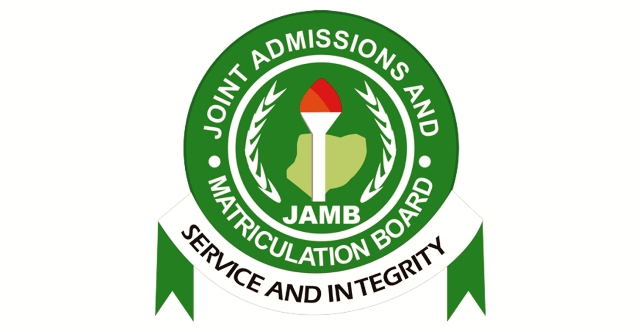
The Joint Admissions and Matriculation Board (JAMB) on Monday, released the results of the 2024 Unified Tertiary Matriculation Examination, showing that 1,402,490 candidates out of 1,842,464 failed to score 200 out of 400 marks.
The number of candidates who failed to score half of the possible marks represents 78 per cent of the candidates whose results were released by JAMB.
Giving a breakdown of the results of the 1,842,464 candidates released, the board’s Registrar, Prof. Ishaq Oloyede, noted that, “8,401 candidates scored 300 and above; 77,070 scored 250 and above; 439,974 scored 200 and above while 1,402,490 scored below 200.”
On naming the top scorers for the 2024 UTME, Oloyede said, “It is common knowledge that the Board has, at various times restated its unwillingness to publish the names of its best-performing candidates, as it considers its UTME as only a ranking examination on account of the other parameters that would constitute what would later be considered the minimum admissible score for candidates seeking admission to tertiary institutions.
“Similarly, because of the different variables adopted by respective institutions, it might be downright impossible to arrive at a single or all-encompassing set of parameters for generating a list of candidates with the highest admissible score as gaining admission remains the ultimate goal. Hence, it might be unrealistic or presumptive to say a particular candidate is the highest scorer given the fact that such a candidate may, in the final analysis, not even be admitted.
“However, owing to public demand and to avoid a repeat of the Mmesoma saga as well as provide a guide for those, who may want to award prizes to this set of high-performing candidates, the Board appeals to all concerned to always verify claims by candidates before offering such awards.”
Oloyede also noted that the results of 64,624 out of the 1,904,189, who sat the examination, were withheld by the board and would be subject to investigation.
He noted that though a total of 1,989,668 registered, a total of 80,810 candidates were absent.
“For the 2024 UTME, 1,989,668 candidates registered including those who registered at foreign centres. The Direct Entry registration is still ongoing.
“Out of a total of 1,989,668 registered candidates, 80,810 were absent. A total of 1,904,189 sat the UTME within the six days of the examination.
“The Board is today releasing the results of 1,842,464 candidates. 64,624 results are under investigation for verification, procedural investigation of candidates, Centre-based investigation and alleged examination misconduct”, he said.
Oloyede also said the Board, at the moment, conducts examination in nine foreign centres namely: Abidjan, Ivory Coast; Addis Ababa, Ethiopia; Buea, Cameroon; Cotonou, Republic of Benin; London, United Kingdom; Jeddah, Saudi Arabia; and Johannesburg, South Africa.
“The essence of this foreign component of the examination is to market our institutions to the outside world as well as ensuring that our universities reflect the universality of academic traditions, among others. The Board is, currently, fine-tuning arrangements for the conduct of the 2024 UTME in these foreign centres,” he explained.
News
Ex-CBN Director Admits Collecting $600,000 Bribe For Emefiele
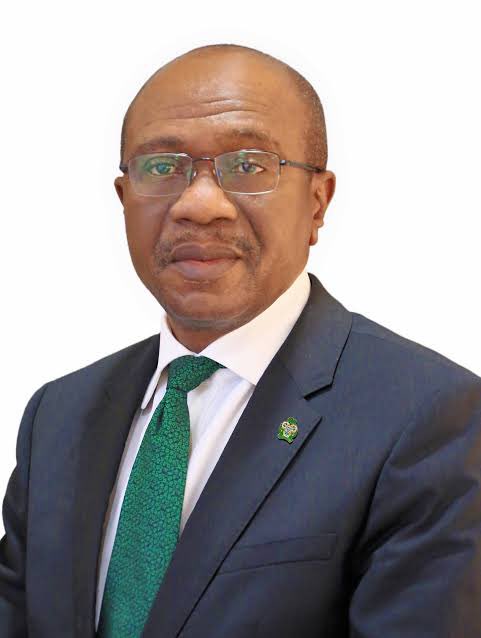
A former Director of Information Technology with the Central Bank of Nigeria, John Ayoh, has alleged that he collected on behalf of the former governor of the apex bank, Godwin Emefiele, a sum of $600,000 in two installments from contractors.
Ayoh, the second witness of the Economic and Financial Crimes Commission (EFCC), disclosed this on Monday while recounting instances where he facilitated the delivery of money to Emefiele, claiming it was for contract awards.
Under cross-examination at the Ikeja Special Offences Court in Lagos by the defence counsel, Olalekan Ojo (SAN), Ayoh admitted to facilitating the alleged bribery under pressure.
The embattled former governor of the apex bank is having many running legal battles both in Abuja and Lagos and is being tried by the EFCC at the Special Offences Court over alleged abuse of office and accepting gratification to the tune of $4.5 billion and N2.8bn.
He was arraigned on April 8, 2024, alongside his co-defendant, Henry Isioma-Omoile, on 26 counts bordering on abuse of office, accepting gratifications, corrupt demand, receiving property, and fraudulently obtaining and conferring corrupt advantage.
Emefiele’s defence, however, challenged the court’s jurisdiction over constitutional matters, urging the quashing of counts one to four and counts eight to 24 against him.
Ayoh, who was led in evidence by the EFCC prosecution counsel, Rotimi Oyedepo (SAN), said the first money he collected on Emefiele’s behalf was $400,000 which his assistant, John Adetola, came to collect at his house in Lekki, Lagos State.
He further told the court that the second bribe of $200,000 was collected at the headquarters of CBN, at the Island office.
He said the money was brought in an envelope, adding that when the delivery person, Victor, was on the bank’s premises, he contacted Emefiele, who insisted on receiving the package directly from Ayoh without involving third parties.
He said when he went to deliver the package, he saw many bank CEOs waiting to see the former apex bank governor.
When questioned if he had ever been involved in any criminal activity, he responded in the negative but admitted that he had facilitated the commission of crime unknowingly.
“I believe I did admit in my statement that I was forced to commit the crime. I don’t know the exact word I used in my statement, but I said we were all forced with tremendous pressure to bend the rules,” he said.
When asked if he opened the envelopes he collected on the two occasions and counted the money to confirm the amount, he was negative in his reply, adding that he did also write in his statement that the money was given to influence the award of contracts.
On whether the EFCC arrested him, the witness said he was invited on February 20, 2024, and returned home after he was granted bail.
Earlier, Emefiele asked the court to quash counts one to four and counts eight to 24 against him, as the court lacks the jurisdiction to try him.
Speaking through his counsel, Ojo, he said counts one to four were constitutional matters, which the court lacked the jurisdiction to determine.
In his argument, citing Sections 374 of the Administration of Criminal Justice Act and 386(2), the defence counsel told Justice Rahman Oshodi that Emefiele ought not to be arraigned before the court on constitutional grounds.
He, therefore, urged the court to resolve the objection on whether the court had the jurisdiction to try the case or not.
The second defendant’s counsel, Kazeem Gbadamosi (SAN), also relied on the submissions of Ojo.
The EFCC counsel, Oyedepo, however, objected, as he asked the court to disregard the decision of the Court of Appeal relied upon by Ojo, saying that the Court of Appeal could not set aside the decision of the Supreme Court on any matter.
Ruling on the submissions of the counsel, Justice Oshodi said he would give his decision on jurisdiction when he delivered judgment as he adjourned till May 3.
He also directed the EFCC to serve the defence proof of evidence on witness number six and his extrajudicial statement.
-
News3 days ago
Drama As Senators Jostle For Seats In Newly Renovated Chamber
-
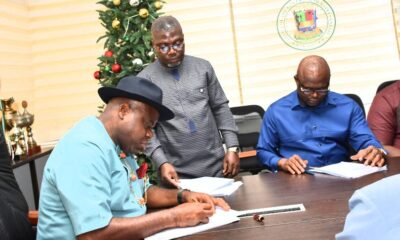
 Niger Delta3 days ago
Niger Delta3 days agoDiri swears in 14 Commissioners, Revenue Chairman
-

 Nation3 days ago
Nation3 days agoVCDF in Partnership with LDSVA Sensitise Women on Gender Equality, Financial Literacy & Entrepreneurship
-
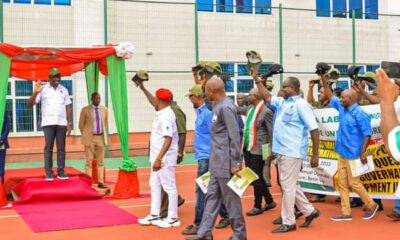
 Niger Delta3 days ago
Niger Delta3 days agoObaseki Approves N70,000 Minimum Wage For Workers
-
Niger Delta3 days ago
Ministry Of Health Decorates Odu As End Malaria Champion In Rivers
-

 Niger Delta3 days ago
Niger Delta3 days agoGroup Dismisses Call For NDDC MD’s Sack … Passes Confidence Vote.
-
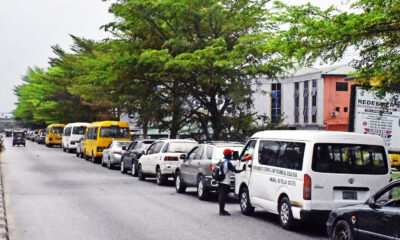
 Business3 days ago
Business3 days agoFuel Scarcity: IPMAN threatens shutdown over bridging claims
-
Niger Delta3 days ago
Court Exonerates Ekpeye Monarch, 42 Others From Murder Of Ahoada DPO

